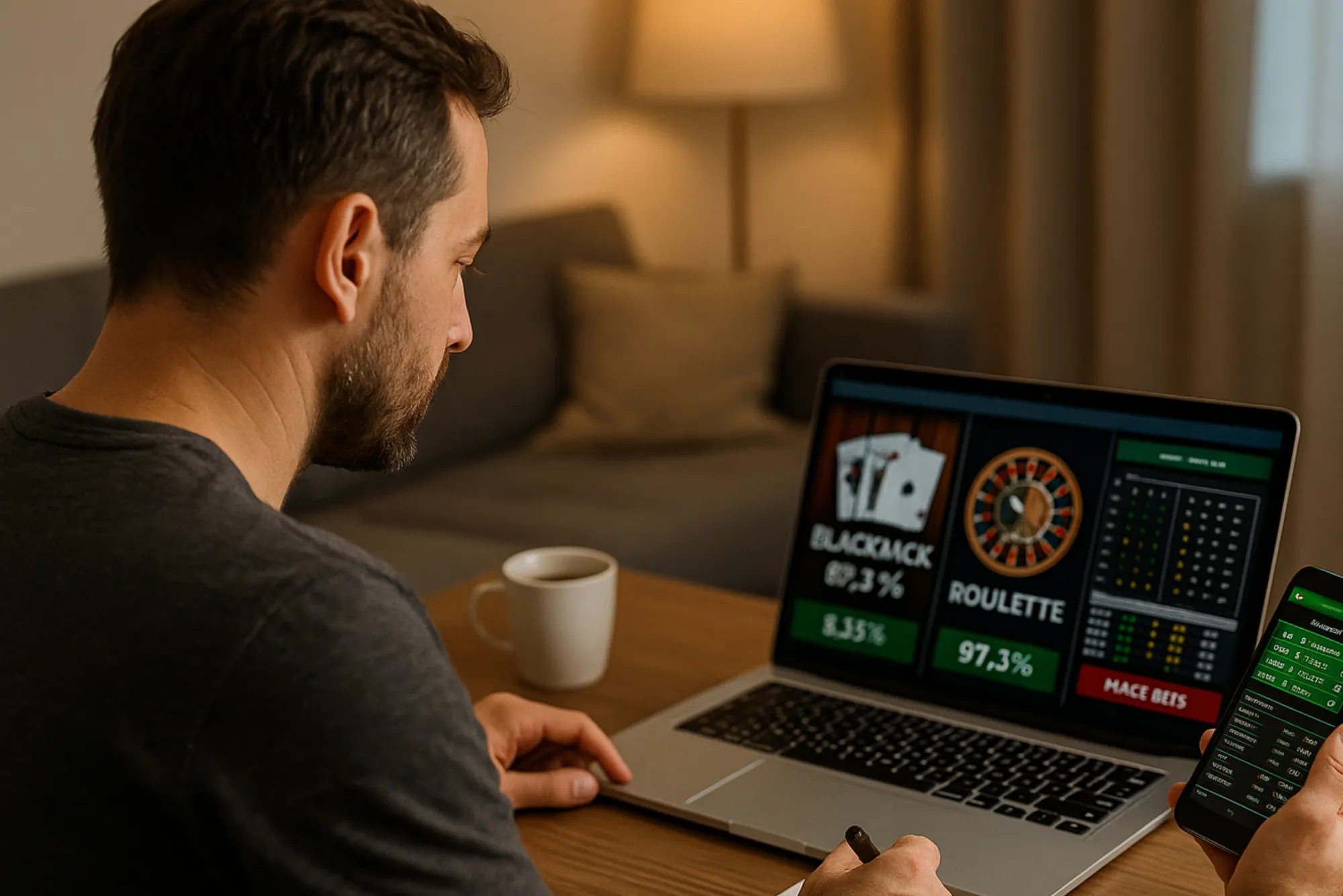When I first dipped my toes into the vast ocean of betting options, I assumed that sports betting would offer the best returns—after all, with a little research and insider knowledge, I figured I could outsmart the odds. Over time, however, I discovered that returns vary widely across different games and markets. Some games deliver consistent, modest profits, while others tempt with high payouts at the cost of steep losses. In this article, I’ll share insights from my personal journey and conversations with seasoned bettors to help you understand which betting options can yield better returns and why. By the end, you’ll be equipped to choose the formats that align best with your risk tolerance and skill level.
To set the stage, it helps to clarify what we mean by “returns.” In betting, returns are typically measured by the expected value (EV) or the average amount you’ll win or lose per wager over time. A positive EV means, on average, you come out ahead; a negative EV indicates the house or book retains a portion of your stake indefinitely. While no bet is guaranteed, understanding EV, house edge, and bookmaker margin helps identify which games offer the fairest chance to profit in the long run.
Comparing House Edges and Margins
Every betting market has an inherent cost—known as the house edge in casino games or the bookmaker’s margin in sports betting. Consider roulette, where the European variation features a single zero and a house edge of around 2.7%. In contrast, American roulette adds a double zero, boosting the edge to 5.26%. Such a difference significantly impacts returns over hundreds of spins. Likewise, bookmaker odds are offered with built-in margins: if two teams are evenly matched, a “true” 50/50 event would yield odds of 2.00 (decimal), but you often see odds of 1.90 on each side, meaning a 5% margin in the book’s favor.
In my experience, the lowest-cost games tend to be skill-based casino tables like blackjack and video poker—provided you apply optimal strategies. Blackjack can have a house edge as low as 0.5% when using perfect basic strategy, while certain video poker variants (like Jacks or Better) can approach 99.5% return-to-player (RTP) rates when playing full-pay games. Cracking these skills takes practice, but the return potential outshines most luck-based slots, which often carry RTPs between 92% and 96%.
Casino Classics: Skill vs. Luck
Video poker and blackjack stand out among casino offerings for delivering better returns to informed players. In a lively casino at home, I remember logging hours on a video poker machine, studying pay tables and practicing strategy charts. After mastering Jacks or Better’s optimal play, I saw small but reliable upticks in my session results. Meanwhile, at online tables, I used chart overlays to guide my hit or stand choices in blackjack, consistently reducing the house edge.
Poker, too, offers potential for profit—though here you play against other entrants rather than the house. I’ve played in low-stakes online ring games where skilled decision-making and bankroll management yielded positive ROI over weeks of play. Successful poker requires not only understanding pot odds and hand reading, but also emotional control and opponent profiling. While the learning curve is steeper, the profit potential in poker can surpass most casino games if you’re willing to put in the study time.
Sports Betting: Value and Analysis
Many bettors gravitate towards sports because of the perceived element of expert analysis. I started by wagering on local football leagues, leveraging statistical models I built on spreadsheets. The key is finding “value bets”—instances where the bookmaker’s odds undervalue the true probability of an outcome. A friend introduced me to the concept of closing line value: if your odds consistently beat the closing market odds, you’re likely onto a profitable strategy.
That said, sportsbooks typically maintain margins of 4% to 8%, depending on the sport and market liquidity. While professional bettors can eke out profits by exploiting niche markets or using arbitrage opportunities, the average punter may find chasing consistent returns challenging. For those preferring a looser self-exclusion framework, you may explore betting sites not on GamStop which can offer different promotions and tools, though it’s vital to ensure these platforms remain reputable.
Betting Exchanges and Matched Betting
A growing trend involves betting exchanges—platforms where you can both back and lay bets, effectively acting as the bookmaker yourself. Exchanges like Betfair charge a modest commission (around 2%–5%) on net winnings but offer true market odds without built-in margins. By backing where you see value and laying (betting against) that outcome at slightly lower odds, you can lock in small but guaranteed profits, a process known as matched betting.
I recall a weekend session where I arbed a horse race: backing at my usual bookmaker and laying on the exchange secured a tiny, risk-free edge. Over multiple events, these edges compound. While each arbitrage opportunity might only guarantee a 2% return, repeated across dozens of bets, it can translate into a solid incremental profit.
Risk Management and ROI Realities
Understanding variance is crucial. High-return games often come with high volatility. For instance, progressive jackpot slots can deliver massive payouts but feature low hit frequencies—often one in a million spins or less. A single win can be life-changing, but extended losing streaks are the norm. Compare that to a low-volatility blackjack session where modest wins and losses average out over time.
Sports betting, too, fluctuates. A streak of bad results can wipe out weeks of gains. That’s why most professional bettors advocate staking plans like flat betting, percentage staking, or Kelly criterion to balance risk and reward. I found that staking a fixed percentage of my bankroll per bet, rather than chasing bigger bets after losses, stabilized my results and preserved my capital for the next opportunity.
Real-World Examples: Tracking Long-Term Performance
In early 2023, I journaled my bets across different formats: 1,000 blackjack hands, 500 video poker rounds, 200 sports bets, and 50 slots sessions. By logging stakes, outcomes, and strategy adherence, I calculated ROI percentages:
Blackjack: +0.8% over house edge with strategy tools
Video Poker: +0.5% on full-pay games
Sports Betting: +2.3% on value bets and arbitrage combined
Slots: –4.7% average RTP loss
These figures illustrate that skill-based games and strategic sports betting outperform pure luck games over the long term. However, they require discipline, education, and patience—qualities that casual gamblers may not invest in.
Tips for Maximizing Betting Returns
To boost your betting returns, first commit to learning: study basic strategy charts for blackjack, pay table guides for video poker, and statistical models for sports. Take advantage of free-play or demo options to hone your skills without risking real money. Use tracking software or a simple spreadsheet to review performance and identify leaks in your approach.
Leverage promotions, loyalty programs, and cashback offers responsibly. Many sites reward frequent play with free bets or reload bonuses that can offset wagering losses. When using promotions on betting sites not on GamStop, for instance, ensure you read T&Cs to avoid wagering traps.
Finally, embrace responsible bankroll management. Avoid emotional betting, chase only calculated edges, and set clear loss limits. By treating betting as a long-term investment in skill development rather than a quick money scheme, you position yourself for sustainable returns.
Conclusion
No single betting game guarantees success; rather, returns correlate strongly with skill, discipline, and understanding of each format’s mechanics. Casino games like blackjack and video poker offer the most consistent positive EV for players willing to master optimal strategies. Poker can yield high ROI for those adept at opponent analysis, and sports betting provides opportunities for value with diligent research and use of exchanges. Conversely, slots and other high-variance games typically drain bankrolls over time.
In my experience, blending skill-based table games, matched betting on exchanges, and selective sports wagers creates the best balance of return and enjoyment. Armed with practical insights and a commitment to ongoing learning, you can tilt the odds in your favor—no magic required, just smart play and steady follow-through.








